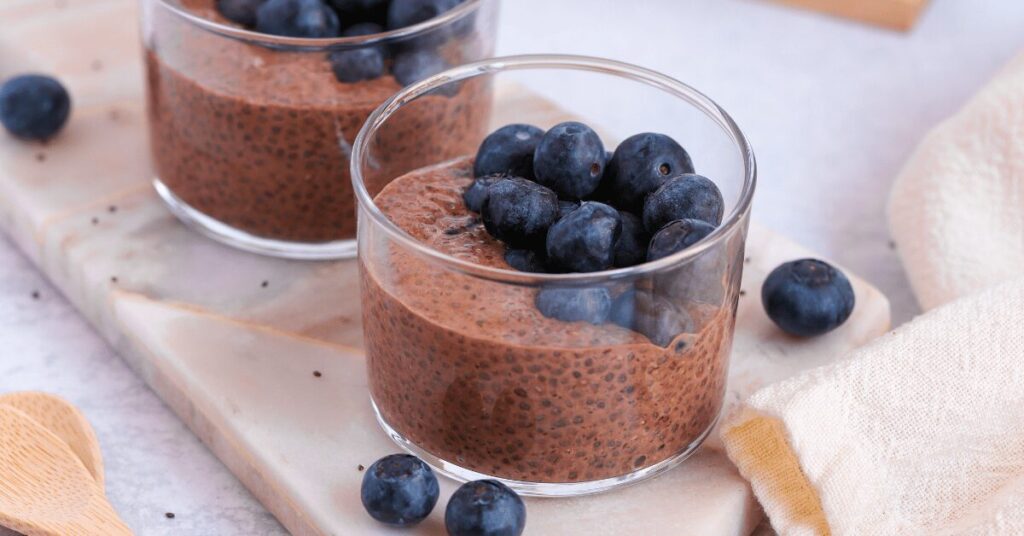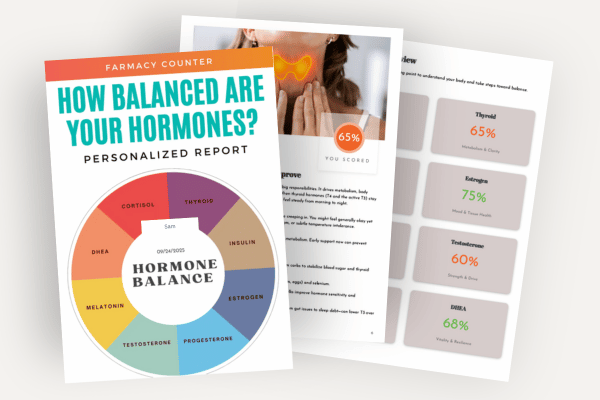
There’s something quietly powerful about the foods kept close. The ones reached for on autopilot—between appointments, after long days, or in moments of simplicity. Over time, those staples shape more than just meals. They shape how the body feels, functions, and heals.
In functional medicine, daily nourishment isn’t just about nutrients—it’s about communication. Every bite sends a signal. To the brain. To the gut. To the adrenals. To the ovaries. Pantry staples can either support or disrupt the endocrine system, which governs mood, metabolism, cycles, energy, and so much more.
Here are a few foundational foods worth keeping on hand—not because they’re trendy, but because they support core hormonal systems in consistent, sustainable ways.
Ground Flaxseeds
Rich in lignans, ground flaxseeds support estrogen metabolism through the liver and gut. These plant compounds help modulate both high and low estrogen states, making them useful in perimenopause, PMS, and cycle irregularities. Their soluble fiber also supports healthy bowel movements—a key detox pathway for clearing spent hormones.
Use in: oatmeal, smoothies, yogurt alternatives, or baked goods.
Tip: Always use ground (not whole) flaxseeds and store in the fridge for freshness.
Recipes From Our Kitchen

Wild-Caught Sardines or Salmon (packed in water)
Fatty fish are high in anti-inflammatory omega-3 fatty acids like EPA and DHA, which support adrenal health, insulin sensitivity, and cellular membrane function—all of which are essential for hormone production and signaling. They also provide vitamin D, selenium, and B12, key nutrients often depleted in women with hormonal imbalances.
Use in: salads, grain bowls, or with avocado on gluten-free crackers.
Tip: Look for BPA-free cans and skip those packed in refined oils.
Recipes From Our Kitchen

Organic Beans and Lentils
Legumes are rich in plant-based protein, fiber, and slow-digesting carbohydrates that help stabilize blood sugar—one of the most foundational elements of hormonal balance. They also supply B vitamins and magnesium, which support ovulation, progesterone production, and stress resilience.
Use in: soups, stews, tacos, bowls, or tossed with greens and olive oil.
Tip: Soak or rinse well to support easier digestion.
Recipes From Our Kitchen

Extra Virgin Olive Oil (in glass, not plastic)
This anti-inflammatory staple supports cell membrane fluidity, allowing hormone receptors to function properly. It’s rich in polyphenols and antioxidants that help calm the kind of oxidative stress and inflammation that underpins many hormone-related conditions, from PCOS to autoimmune thyroid disorders.
Use in: salad dressings, roasted vegetables, and low-heat cooking.
Tip: Store away from light and heat to preserve its integrity.
Recipes From Our Kitchen

Whole Grains like Quinoa, Brown Rice, or Steel-Cut Oats
Whole grains provide complex carbs and fiber that support steady blood sugar, sustained energy, and healthy cortisol rhythms. Stable glucose and insulin levels reduce stress on the adrenal glands and help prevent the kind of hormonal rollercoasters that lead to fatigue, cravings, and cycle irregularities.
Use in: grain bowls, breakfast porridge, or alongside roasted veggies and proteins.
Tip: Rinse grains well and pair with protein and fat for optimal balance.
Recipes From Our Kitchen

Bonus Support: Choosing Organic When Possible
While perfection isn’t required, opting for organic pantry staples can reduce the body’s burden of endocrine-disrupting chemicals like pesticides, herbicides, and plastic residues. These compounds can interfere with estrogen receptors, disrupt thyroid function, and add to the toxic load the liver must process daily.
Choosing organic—especially for items consumed regularly—is a quiet, ongoing way to support detox pathways, hormonal resilience, and cellular health.
Looking for more guidance on which hormones might need extra support?
👉 Take the “How Balanced Are Your Hormones?” Quiz »
Get a free, personalized 13-page hormone report covering 8 key hormone systems, including:
✅ Your unique hormone balance snapshot
✅ Insights for energy, mood, sleep, metabolism, and reproductive health
✅ Functional medicine tips and actionable steps to start rebalancing today

How Balanced are Your Hormones?
Take our 3-minute quiz to discover your unique hormone balance—and get a personalized 13-page report with insights and actionable steps to support energy, mood, sleep, metabolism, and reproductive health.






